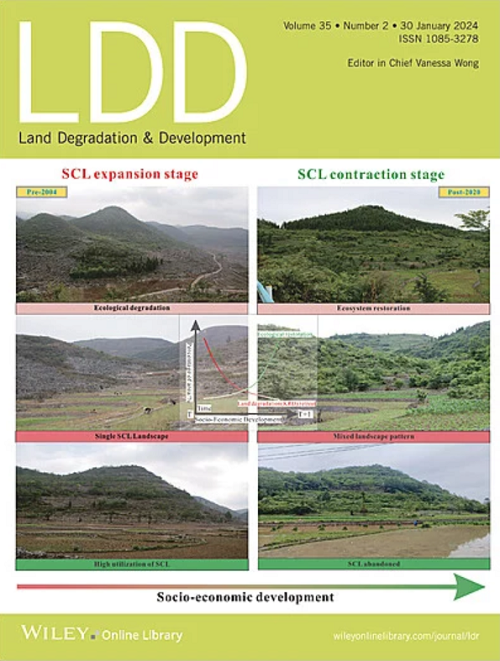了解铍污染的进展:环境风险评估的新见解
IF 3.6
2区 农林科学
Q2 ENVIRONMENTAL SCIENCES
引用次数: 0
摘要
铍(Be)是一种具有重要工业用途的轻金属,由于其毒性和持久性以及广泛的使用,特别是在机械、航空航天和电子行业的使用,对环境和健康构成了显著的风险。它通常与其他重金属制成合金,以提高材料的性能。铍释放到环境中的主要途径包括煤和化石燃料燃烧时的排放以及固体废物的焚烧。一旦进入自然环境,铍主要与土壤颗粒和沉积物相关联,尤其是在陆地和水生生态系统中。本综述研究了铍进入环境的途径,包括大气沉降、工业排放和从天然地质沉积物中沥滤。论文重点介绍了铍在土壤和水系统中的生物利用率和流动性,强调了影响其持久性和生物累积潜力的地球化学和物理因素。对风险评估方法进行了评估,重点是人类的接触途径,包括吸入空气中的微粒和摄入受污染的水和食物。对人类健康的毒理学影响进行了批判性分析,详细介绍了急性和慢性影响,如呼吸系统疾病和致癌性。本综述对现有的监管框架和补救战略进行了评价,评估了它们在减轻环境污染和贝暴露方面的功效。通过整合跨学科研究,本文提供了对铍的环境行为和毒理学的深入理解,并提供了可为健全的政策框架提供依据和塑造未来研究方向的见解。本文章由计算机程序翻译,如有差异,请以英文原文为准。
Advancements in Understanding Beryllium Contamination: Novel Insights Into Environmental Risk Assessment
Beryllium (Be), a lightweight metal with significant industrial applications, poses notable environmental and health risks due to its toxicity and persistence, and widespread use, particularly in the mechanical, aerospace, and electronics sectors. It is commonly alloyed with other heavy metals to enhance material properties. The primary environmental pathways for Be release include emissions from coal and fossil fuels combustion, as well as the incineration of solid wastes. Once introduced into the natural environment, primarily Be associated with soil particles and sediments, particularly in terrestrial and aquatic ecosystems. This review examined the pathways through which Be enters the environment, including atmospheric deposition, industrial discharge, and leaching from natural geologic deposits. The paper highlights the bioavailability and mobility of Be in soil and water systems, emphasizing the geochemical and physical factors influencing its persistence and potential for bioaccumulation. Risk appraisal methodologies are evaluated, with a focus on human exposure routes, including inhalation of airborne particulates and ingestion of contaminated water and food. The toxicological impacts on human health are critically analyzed, detailing both acute and chronic effects, such as respiratory diseases and carcinogenicity. This review evaluates existing regulatory frameworks and remediation strategies, assessing their efficacy in mitigating environmental contamination and exposure to Be. By integrating interdisciplinary research, this paper provides an in-depth understanding of the environmental behavior and toxicology of beryllium, offering insights that can inform robust policy frameworks and shape future research directions.
求助全文
通过发布文献求助,成功后即可免费获取论文全文。
去求助
来源期刊

Land Degradation & Development
农林科学-环境科学
CiteScore
7.70
自引率
8.50%
发文量
379
审稿时长
5.5 months
期刊介绍:
Land Degradation & Development is an international journal which seeks to promote rational study of the recognition, monitoring, control and rehabilitation of degradation in terrestrial environments. The journal focuses on:
- what land degradation is;
- what causes land degradation;
- the impacts of land degradation
- the scale of land degradation;
- the history, current status or future trends of land degradation;
- avoidance, mitigation and control of land degradation;
- remedial actions to rehabilitate or restore degraded land;
- sustainable land management.
 求助内容:
求助内容: 应助结果提醒方式:
应助结果提醒方式:


